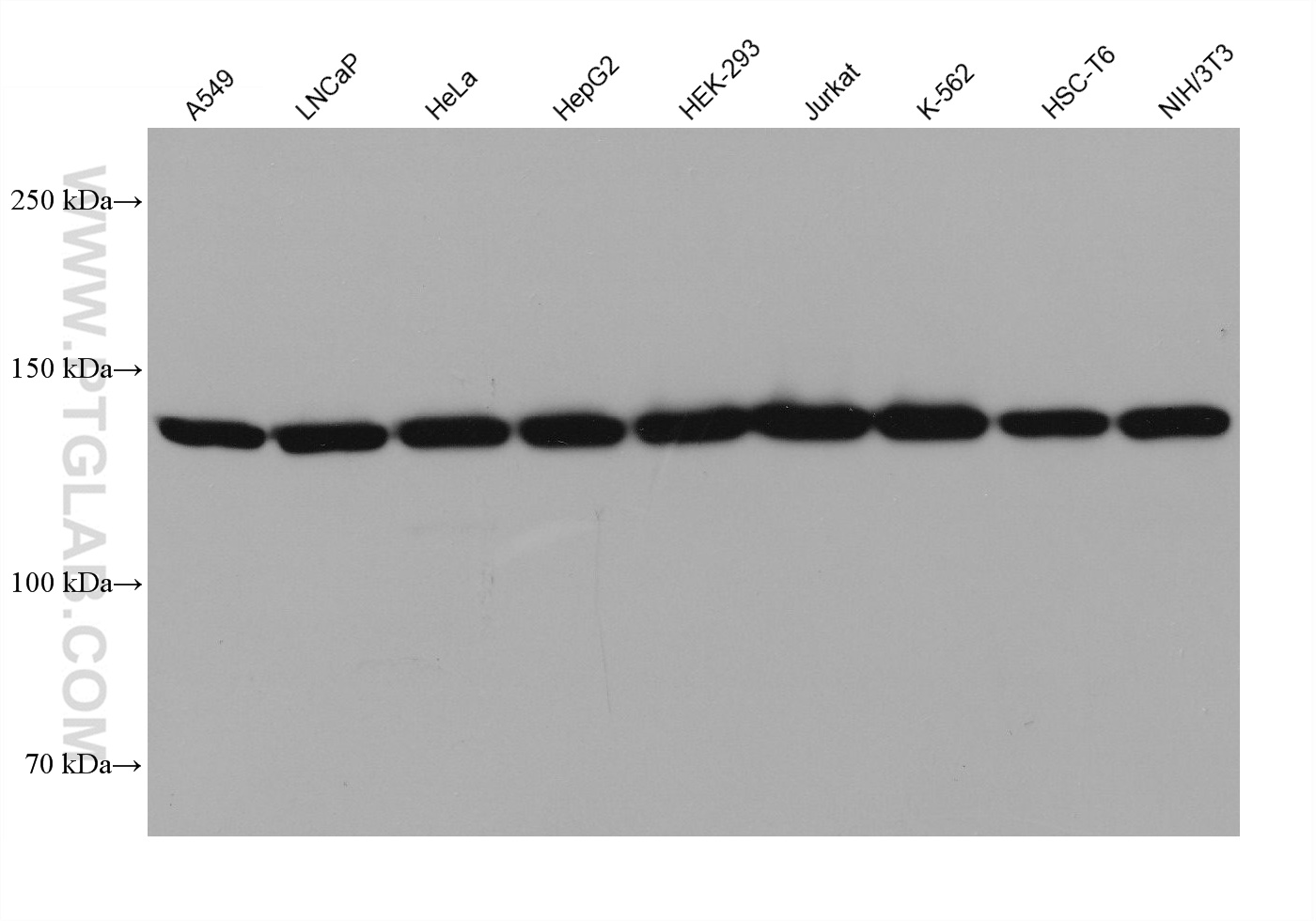验证数据展示
经过测试的应用
| Positive WB detected in | A549 cells, LNCaP cells, HeLa cells. HepG2 cells, HEK-293 cells, Jurkat cells, K-562 cells, HSC-T6 cells, NIH/3T3 cells |
推荐稀释比
| 应用 | 推荐稀释比 |
|---|---|
| Western Blot (WB) | WB : 1:5000-1:50000 |
| It is recommended that this reagent should be titrated in each testing system to obtain optimal results. | |
| Sample-dependent, Check data in validation data gallery. | |
产品信息
68152-1-Ig targets MYO1E in WB, ELISA applications and shows reactivity with Human, Mouse, Rat samples.
| 经测试应用 | WB, ELISA Application Description |
| 经测试反应性 | Human, Mouse, Rat |
| 免疫原 | MYO1E fusion protein Ag12244 种属同源性预测 |
| 宿主/亚型 | Mouse / IgG1 |
| 抗体类别 | Monoclonal |
| 产品类型 | Antibody |
| 全称 | myosin IE |
| 别名 | HuncM IC, MYO1E, Myosin Ic, myosin IE |
| 计算分子量 | 1108 aa, 127 kDa |
| 观测分子量 | 120-150 kDa |
| GenBank蛋白编号 | BC098392 |
| 基因名称 | MYO1E |
| Gene ID (NCBI) | 4643 |
| RRID | AB_2923675 |
| 偶联类型 | Unconjugated |
| 形式 | Liquid |
| 纯化方式 | Protein G purification |
| UNIPROT ID | Q12965 |
| 储存缓冲液 | PBS with 0.02% sodium azide and 50% glycerol , pH 7.3 |
| 储存条件 | Store at -20°C. Stable for one year after shipment. Aliquoting is unnecessary for -20oC storage. |
背景介绍
MYO1E, also named as Myosin-Ie and MYO1C (distinct from the MYO1C gene located on chromosome 17), encodes a member of the nonmuscle class I myosins which are a subgroup of the unconventional myosin protein family. The unconventional myosin proteins function as actin-based molecular motors. This protein localizes to the cytoplasm and may be involved in intracellular movement and membrane trafficking. Mutations in this gene are the cause of focal segmental glomerulosclerosis-6.
实验方案
| Product Specific Protocols | |
|---|---|
| WB protocol for MYO1E antibody 68152-1-Ig | Download protocol |
| Standard Protocols | |
|---|---|
| Click here to view our Standard Protocols |
